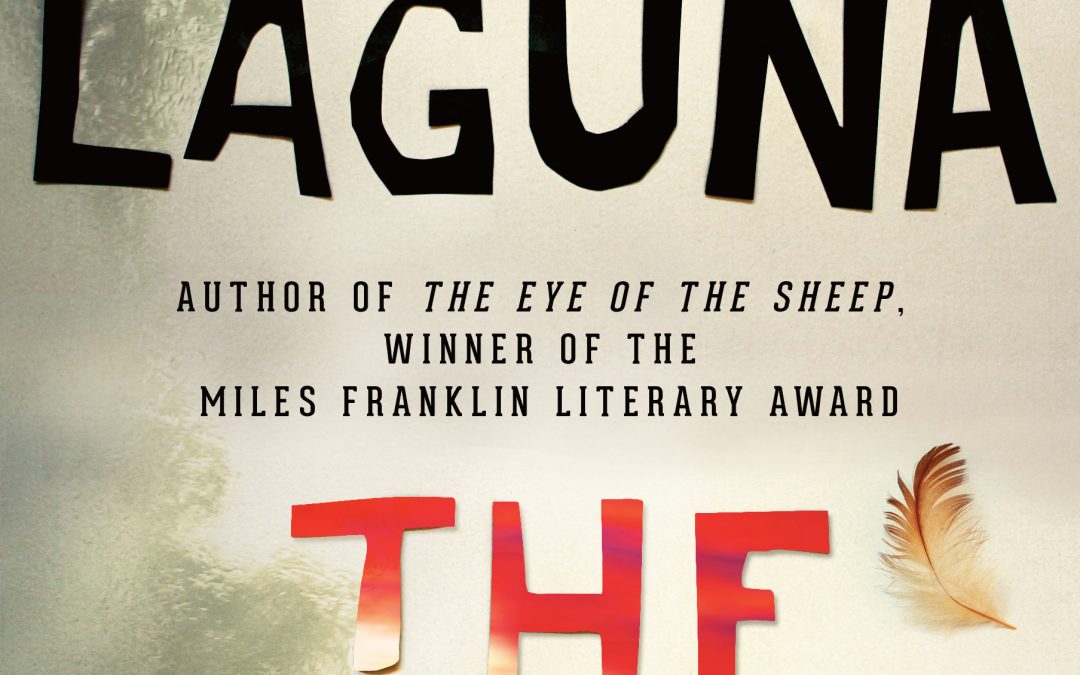Sofie Laguna was awarded the 2015 Miles Franklin for her novel The Eye of the Sheep, and in this next book The Choke (Allen & Unwin Books 2017), she has once again written to her strength of speaking in the voice of a child, and telling the story from the perspective of a child, while still managing to produce a book that is very much for adults.
The Choke is narrated by 10-year-old Justine, a child who has trouble with words: reading them, writing them, expressing them, understanding them. Justine lives with her Pop on his patch of land, Pop’s Three, near the banks of the Murray. The title is a reference to the narrowing of the river at one point, where the sides threaten to meet. Justine’s situation – her home life, her friendships, her family, her standard of living – is grim. Her mother took off years earlier, and perhaps, who could blame her. Justine’s father appears sporadically; he is a man of secrets and lies, with a criminal past and violent tendencies. Other characters hover on the periphery of her life, or come in and out as circumstances change: Kirk and Steve, her half-brothers; their mother, Relle; childhood friends and long-standing family enemies. Grudges are held for a long time at The Choke; wounds are not easily forgotten, and revenge is a long game. The one consistent factor for Justine is her Pop. Despite his age, his frailty, his drinking and his questionable hygiene and domestic habits, he loves his granddaughter, and has cared for her when no-one else was around to do so. He has shouldered the responsibility of care, perhaps not diligently, but certainly with his own brand of warmth and affection. He lavishes most of his affection, in fact, on the other ladies in his life – his chooks. It is to the chickens he talks, whispering his most secret fears and confiding in them his worry and despair. The humans in Pop’s life continually disappoint him, but the chooks are constant and reliable.
We are introduced to Justine and her circumstances through her own perspective, and so we view everything that happens through the prism of childhood, naivety, vulnerability and innocence. Justine’s learning difficulties (she has undiagnosed dyslexia) limit her comprehension of her world, and her humiliation at being unable to understand things only makes matters worse. But she is a determined little girl, plucky and resilient, and she trudges through her hardships and trials with persistence and forbearance.
The characterisations in this novel are very strong, not only for Justine (how she feels she came into the world, the burden she carries) and Pop (his scarring wartime experiences from the Burma railway, his disappointment in family), but with other characters – in Jamie and Relle and Kirk and the others, we see the best and the worst of them, and we understand where they are coming from and why they behave the way they do because we know something of their own backgrounds and experiences. All of their actions may not be explicable, but they all make some sort of sense when set against the backdrop of their histories.
Justine’s friendship with Michael – her first real friend – is explored in a gentle and sensitive way, and Michael, despite his own physical disability, is an emotionally and intellectually intelligent compatriot who balances Justine’s fears.
The Choke navigates some disturbing territory: male violence, abuse, neglect, powerlessness, poverty, shame, guilt, revenge and hate. Justine is at the centre of this maelstrom of feeling, and she does not escape unscathed. But this is also a book about hope, and love, and friendship; about the power of forgiveness, the bonds of the family we choose for ourselves, and the connection we have to familiar places. The story is raw and sad and distressing, but it is also compassionate, empathetic and a shout-out to the triumph and indomitability of the human spirit when faced with challenges and loss. The last third of the book cannot be described without giving away the plot, but suffice to say that Justine faces challenges that she never imagined and that she is ill-equipped to handle, but she nevertheless does the best she can with what she’s got. She may have innately learnt ‘never to trust anybody’, but this does not stop her from ultimately trusting herself.

